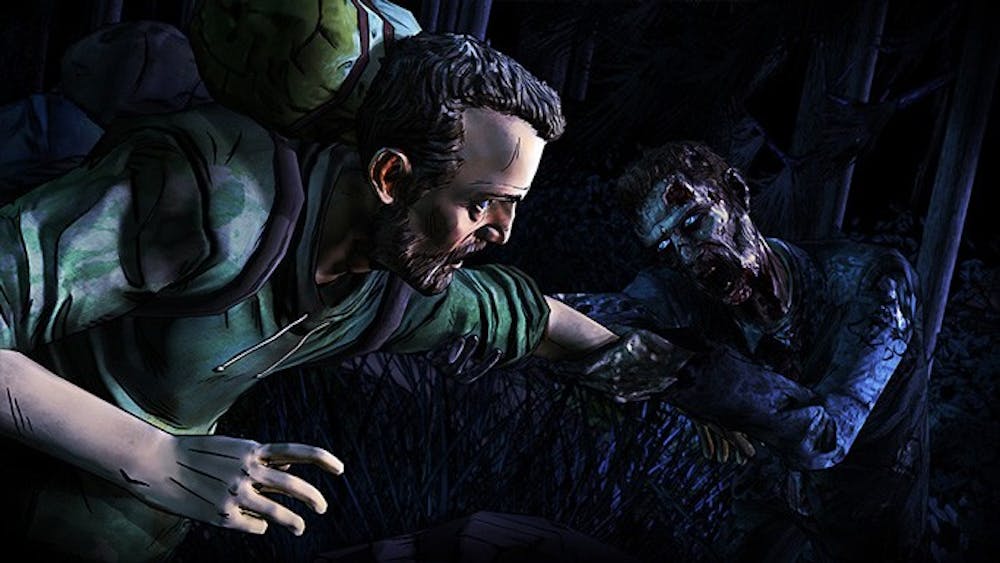Walking Dead, Wolf Among Us strident new steps in narrative
Over the past 20 years, video games have become increasingly cinematic. Compare the pure game play of Tetris or the simple story of Super Mario World to the space operatic Mass Effect or Call of Duty’s action movie spirit, and it becomes clear that there has been a major shift in how video games tell their stories.
Telltale Games, the studio behind the classic point-and-click adventure games Tale of Monkey Island and the Sam and Max games, has taken the evolution to its next step. The point of their two current flagship series, The Walking Dead and The Wolf Among Us, isn’t gunplay, strategy or hoarding potions — it’s all about the story.
The Walking Dead game is structured like a television show, divided into seasons and approximately two-hour episodes. The emotional core of the game is the bond between player character Lee, a former history professor with a criminal past, and abandoned child Clementine. The history of video games is fraught with annoying sidekicks, but Clementine is an excellently-sketched character, one who responds to your decisions and relies on you for protection. In the consequence-free world of video games, players are often free to release their violent id — but what would you do with a daughter figure watching you?
The Walking Dead game features excellent storytelling and character work, portraying a post-apocalyptic world with a far clearer vision than AMC’s often-mediocre The Walking Dead series. The interactivity of the story creates intense personal bonds, making every death a heart wrencher and every decision meaningful.
The Wolf Among Us is the other Telltale game running right now, currently on episode two of its first season. The game is based on the Fable graphic novel series, where fairytale characters immigrated to New York and live in the harsh, noir Fabletown. Players control hard-edged sheriff Bigby Wolf, the reformed Big Bad Wolf constantly confronting the barbarism of his past. The setting is rendered in sickly neons, and the cast of characters — profane working man Mr. Toad, drunken layabout Colin of the Three Little Pigs, out of control serial jerk The Woodsman — work to make the experience cinematic and darkly fantastical.
It’s a new form of storytelling, the logical conclusion to the cut scene and story heavy triple-A video games of today, and it works like gangbusters. Much like television’s current storytelling golden age, Telltale’s adventure games are redefining what mediums can tell good stories.

